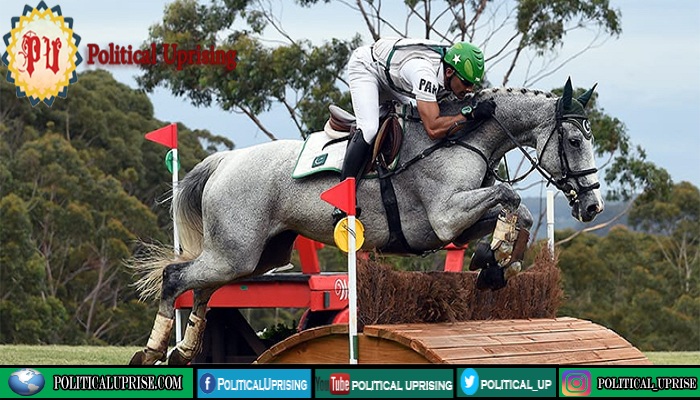I never expected a wall to change me. Not really. As a journalist, I’ve reported from places where walls divide hearts and homes concrete reminders of conflict, fear, and forgotten promises. But this wall , this colossal serpent of stone snaking across China’s mountains didn’t divide. It revealed. It reminded.
By Aoon Sherazi
As part of the CIPCC program in Beijing, I joined a group of fellow journalists from around the world each of us carrying different flags, but somehow, in that moment, one shared sense of wonder. That morning, the Beijing sky, so often masked in grey, softened. The clouds seemed to drift aside gently, as if they too wished for us to see something ancient, something real.
We climbed the Great Wall not as tourists, but as seekers. I wasn’t just here to observe; I was here to feel. After covering everything from war zones to elections, I’ve grown used to bulletproof glass, short deadlines, and long cynicism. Somewhere along the way, I forgot what stillness felt like. But there, on that ancient pathway, the silence was loud. And it said everything.
China Cracks Down on Official Spending as Xi Revives Frugality Campaign Amid Fiscal Strain
There’s a Chinese proverb:
“He who does not reach the Great Wall is not a true man.”
But I believe that he who reaches it with an open heart may become something more a storyteller touched by time.

Every step beneath my feet held centuries of burden and pride. My hand rested on the weathered stone, still warm from the morning sun, and I imagined the calloused palms that built it. The laborers who mixed rice with mortar. The guards who scanned the horizon with tired eyes. The lovers who etched their names into stone, hoping their stories would outlast wars and dynasties.
Then, halfway through the climb, a familiar buzz my phone. A message from my newsroom in Islamabad: “Need a quick reaction on breaking political developments.”
I paused, stared at the screen, then typed words I had never written before:
“Not today.”
Deputy Prime Minister Ishaq Dar to Visit China Amid Regional Tensions
For a journalist trained to chase urgency, this was my quiet rebellion. Because some stories don’t come from microphones or press releases. Some rise from silence and this was one of them.
At the highest watchtower, as the wind kissed my forehead and the mountains rolled endlessly into the haze, I didn’t just see China. I saw echoes of my own homeland Pakistan’s forts in Lahore, Multan, Baltit stones that have held centuries but have lost their storytellers.
We are too quick to forget what does not scream. But that day, the Wall whispered. And in its whisper, I heard the need to preserve not just structures, but spirit.
What moved me most wasn’t just the Wall’s scale, but its soul. An old Chinese couple, holding each other as they navigated steep steps. A young bride, her red dress flowing in the wind, capturing not just a photo but her place in history. Teenagers laughing, proud, rooted. This wasn’t a relic. It was a living testament to national memory.

It struck me how differently we treat heritage back home, how quickly we let walls decay, and how slowly we realize their worth. Back in my apartment that night, I wrote in my notebook, not as a reporter but as a son of South Asia:
“The Great Wall is not just China’s pride it is humanity’s proof that what we build with resolve, we preserve with reverence.”
Pakistan’s famous poet Ahmed Faraz once wrote:
تو خوش بو ہے ہواؤں میں بکھر جائے گا
مسئلہ پھول کا ہے پھول کدھر جائے گا
(“You are fragrance you will scatter into the air.
The real question is of the flower where will the flower go?”)
I’ve reported from presidential palaces and refugee camps. I’ve witnessed history being made and unmade. But here, for once, I felt history breathe. The Wall didn’t just hold me in awe it handed me a mirror.



